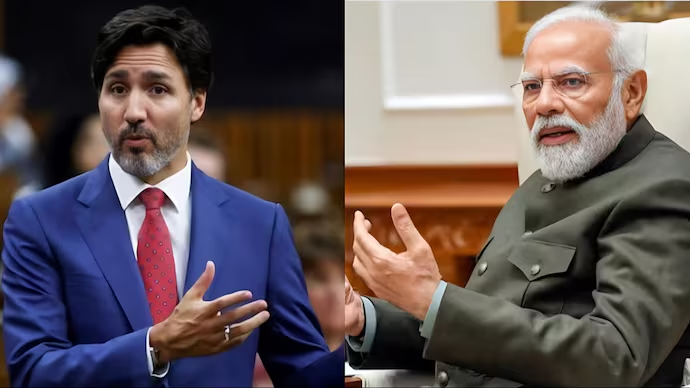India’s diplomatic relations with Canada have come under intense strain following accusations from Prime Minister Justin Trudeau that Indian agents were involved in the killing of Khalistani separatist Hardeep Singh Nijjar. These allegations, while not supported by evidence publicly, represent a significant escalation in tensions between the two nations, prompting retaliatory diplomatic measures and creating an international dilemma. India’s response has been firm but restrained thus far, maintaining its innocence while pushing back against these claims. However, the situation demands a much stronger response from India for several reasons.
1. Unfounded Allegations Undermine India’s Sovereignty
Trudeau’s allegations strike at the heart of India’s sovereignty, implying that its government would engage in extrajudicial killings abroad. This accusation is serious, as it attempts to paint India in the same light as authoritarian regimes that disregard the rule of law. Canada’s claim undermines the credibility of India as a democratic nation that adheres to international law. A stronger, unequivocal rebuttal is necessary to dispel any attempts to associate India with such criminal activities, especially in the absence of any concrete evidence. India’s dismissal of these claims as “absurd” is only the first step—demanding an apology and requiring Canada to substantiate its charges would further assert India’s stance.
2. Diplomatic Retaliation is Required to Defend Indian Diplomats
Indian diplomats in Canada have reportedly been subjected to harassment and intimidation, with little to no protection from the Canadian government. In response to these threats, India has already suspended visa services in Canada and taken steps to safeguard its diplomatic missions. Still, a more assertive stance is required to ensure that Canadian authorities fulfill their obligations under the Vienna Convention to protect diplomats on their soil. Continuing to allow such harassment would set a dangerous precedent, signaling that India tolerates violations of international diplomatic norms.
3. Canada’s Own Record on Harboring Criminal Elements
Trudeau’s government has not only failed to present evidence to support these claims but has also allowed Canada to become a safe haven for individuals with connections to extremist groups such as the Khalistani movement. Figures like Nijjar, wanted for serious charges in India, have enjoyed protection under Canada’s lax stance on separatist elements. By not addressing this issue strongly enough, India risks further emboldening individuals and groups that threaten its national security. India should highlight this hypocrisy at international forums and within its diplomatic engagements to expose Canada’s complicity in sheltering such elements.
.
4. Geopolitical Implications for India’s Global Standing
India is rapidly emerging as a key player in global geopolitics, particularly in the Indo-Pacific region, where it serves as a counterbalance to China’s growing influence. This makes the current spat with Canada all the more significant. The muted response from Canada’s key allies, including the United States, the UK, and Australia, illustrates India’s growing importance on the world stage. These nations, recognizing the strategic and economic importance of their relationships with India, have refrained from backing Canada’s claims. This diplomatic silence should empower India to respond more assertively, knowing that it holds substantial leverage in these relationships.
5. Economic Considerations
While political tensions have escalated, both nations have significant trade relationships that could be impacted by further deterioration in diplomatic ties. For India, adopting a firmer stance now would reinforce its standing as a country that does not bow to baseless accusations while continuing to project economic strength. India’s growing global economy, projected to surpass that of Germany and Japan by 2030, reinforces the need for the country to protect its national image. A strong response that places the onus on Canada to present evidence or withdraw its accusations would protect India’s long-term economic interests by preventing damage to its reputation as a global powerhouse.
Conclusion: Assertiveness as a Diplomatic Strategy
India’s current diplomatic restraint, while commendable for maintaining decorum, must evolve into a more forceful strategy. Canada’s unsubstantiated allegations threaten not just bilateral relations but also India’s global standing. A stronger response will protect India’s sovereignty, ensure the safety of its diplomats, expose Canada’s complicity in harboring extremists, and safeguard India’s geopolitical and economic interests. In this critical juncture, India cannot afford to appear passive; it must lead from a position of strength.






